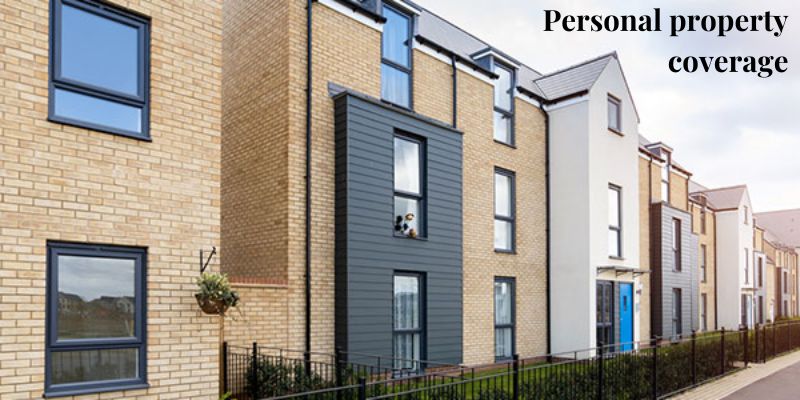Condo Insurance vs Homeowners Insurance for Condo of 6 Type Insurance
According to the Insurance Information Institute (III), there are two different types of condo insurance policies: one is for individual condo owners and the other is homeowners insurance for condo. Your personal condo insurance policy aids in defending your individual unit by helping to cover losses to your residence and personal property. The structure, including the roof and siding, as well as common or shared features, including corridors and swimming pools, are often covered by a condo association’s insurance policy. The condo association’s policy, sometimes known as the “master policy,” occasionally covers the inside of the unit, according to the III. In these situations, each condo unit’s conventional fixtures, bare walls, floors, and ceilings may be covered by the master policy.
Typically, the association board will take care of obtaining the master policy for the building and public spaces, so you only need to buy insurance for your own condo unit. (Remember that your association dues cover both the insurance and other recurring expenses like upkeep.) However, it is a good idea to be aware of what the association’s policy covers and to confirm that your insurance would assist in covering the cost of any required property repairs following a covered incident. In this article, alltin.net will discuss condo insurance vs homeowners insurance for condo of 6 type insurance.
Loss assessment coverage – Condo Insurance vs Homeowners Insurance for Condo
Condo owners have the option to increase their insurance policy’s loss assessment coverage. This optional coverage could save you from having to foot the bill for any extra assessments the association imposes to cover costs associated with an insurance claim. If the cost of repairs or medical expenses exceeds the association’s coverage limit, which is the most the insurer will pay toward a covered claim, the organization may issue a special assessment to each condo owner to repay the balance owed on the bills. You can submit a claim to help with the costs if you have loss assessment coverage and your association issues an unexpected assessment.

Dwelling coverage – Condo Insurance vs Homeowners Insurance for Condo
A component of homeowners insurance known as dwelling coverage, often known as dwelling insurance, assists in covering the cost of repairing or rebuilding a home’s physical structure as well as any linked structures that are harmed by a covered risk. Damage caused by dangers like fire, hail, theft, or ice is aided in some cases by typical housing insurance.
However, if you have condo insurance, you’ll usually simply need enough protection to rebuild or restore the interior of your apartment. The condo association would typically be liable for repairs to the exterior of the building, exterior walls, corridors, elevators, etc. Building Property Protection (Coverage A) replaces Dwelling Protection (Coverage A) in Allstate’s condo insurance policy. Condo unit owner insurance does not include B Other Structures Protection coverage.
Liability coverage – Condo Insurance vs Homeowners Insurance for Condo
If someone is hurt while staying at your condo, liability insurance may assist in paying the ensuing legal and medical expenses if you are held accountable for the incident. If you’re held accountable for accidently harming someone else’s property, this coverage may also be of assistance. Liability protection can help condo owners avoid paying out-of-pocket in these circumstances, but you usually don’t require it for claims involving common spaces. For instance, your association’s insurance will normally take effect if a visitor trips and falls on the building’s front stairs, breaking an ankle.
The main distinction between condo and homeowner liability insurance is that a homeowner must have coverage for all of their real estate. A single-family home with a garage and shed, for instance, could need greater liability protection than a condo of a similar size, as the condo owner only has to cover their unit, not the land or any other structures.
Personal property coverage – Condo Insurance vs Homeowners Insurance for Condo
Whether you live in a condo or a single-family home, it’s probably packed with all of your possessions, from clothing to furniture.Your possessions are insured by personal property insurance, which also helps pay for their replacement or repair in the event of a covered loss. Condo owners should be aware that while personal property coverage is practically the same for both homeowners and condo owners, it is typically not covered by the condo association master insurance. You must make sure you have sufficient coverage for the value of your personal property with both homeowners and condo insurance.

Townhouse insurance coverage – Condo Insurance vs Homeowners Insurance for Condo
A condo would come to mind as a larger structure with many units on each floor, while a townhouse might be imagined as a collection of dwellings connected by shared walls. The two types of residences have certain variances, but in general, their insurance needs are the same. There is no such thing as “townhouse insurance,” since condo insurance typically covers both types of homes. According to the III, each owner of a unit should have their own unique policy, and a condominium or homeowners association should have a master policy covering the shared elements, like a roof, walls, and sidewalks.
Condo or renters insurance – Condo Insurance vs Homeowners Insurance for Condo
You probably don’t need to purchase a condo insurance policy if you are renting a condo or a townhouse. Your landlord ought to have condo insurance that would assist in repairing or rebuilding the apartment following a covered risk, like a fire. However, you might want to think about getting renters insurance. Renters insurance, often known as tenant insurance, aids in protecting your personal items in the event that they are stolen or damaged due to a covered peril. Renters insurance typically includes liability coverage, just like condo insurance does. If someone gets hurt while visiting your rental property or if you are held accountable for accidently destroying someone else’s property, this coverage may be able to assist with the cost of legal or medical expenses.

Having the insurance that best suits your requirements and circumstances is vital, even when condo and homeowners insurance offer comparable coverage. Speak with your insurance provider if you have any queries about either condo insurance or homeowners insurance.




